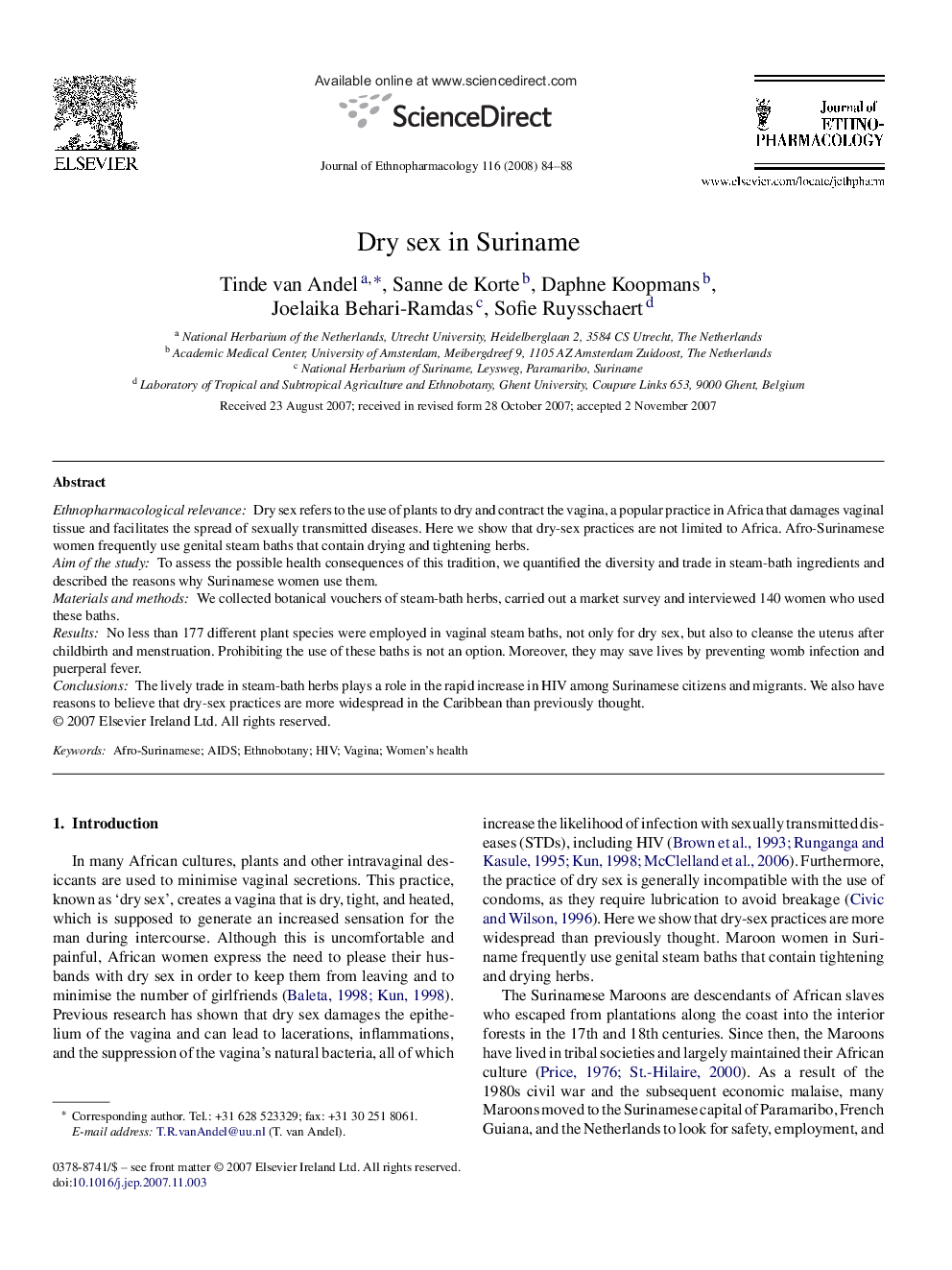| Article ID | Journal | Published Year | Pages | File Type |
|---|---|---|---|---|
| 2547894 | Journal of Ethnopharmacology | 2008 | 5 Pages |
Ethnopharmacological relevanceDry sex refers to the use of plants to dry and contract the vagina, a popular practice in Africa that damages vaginal tissue and facilitates the spread of sexually transmitted diseases. Here we show that dry-sex practices are not limited to Africa. Afro-Surinamese women frequently use genital steam baths that contain drying and tightening herbs.Aim of the studyTo assess the possible health consequences of this tradition, we quantified the diversity and trade in steam-bath ingredients and described the reasons why Surinamese women use them.Materials and methodsWe collected botanical vouchers of steam-bath herbs, carried out a market survey and interviewed 140 women who used these baths.ResultsNo less than 177 different plant species were employed in vaginal steam baths, not only for dry sex, but also to cleanse the uterus after childbirth and menstruation. Prohibiting the use of these baths is not an option. Moreover, they may save lives by preventing womb infection and puerperal fever.ConclusionsThe lively trade in steam-bath herbs plays a role in the rapid increase in HIV among Surinamese citizens and migrants. We also have reasons to believe that dry-sex practices are more widespread in the Caribbean than previously thought.
